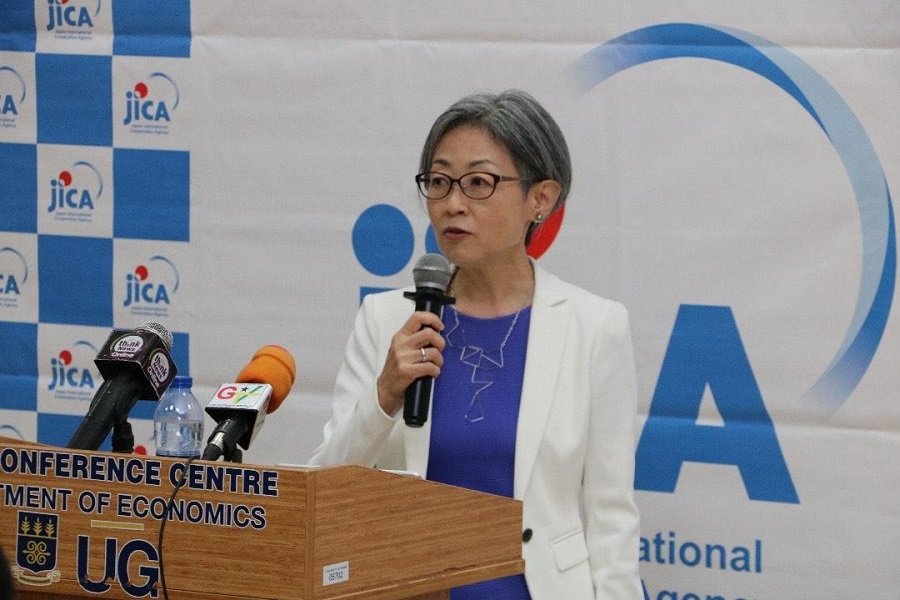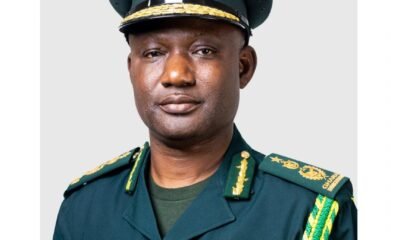News
‘Find ways to track AI generated contents to promote accountability’

A professor of Media and Journalism Studies at the University of Tokyo, Japan, Kaori Hayashi, has urged Ghanaian media organisations, particularly public broadcasters, to take steps to establish mechanisms that can track AI-generated content, verify information, and promote accountability.
This, she said was because technology holds great promise but its uncritical use especially in the media could undermine public trust and truth.
Drawing from Japan’s experience, she explained that even a country renowned for its digital innovations still faces cultural hesitation and institutional skepticism around AI, particularly within journalism.
Prof. Hayashi made the call at the third Japan International Cooperation Agency (JICA) Chair public lecture held in Accra last week.
The event, jointly organised by JICA and the University of Ghana, brought together academics, policymakers, and media professionals to explore how Artificial Intelligence (AI) can be integrated into society without compromising democratic values.
Speaking at the event, Ghana’s journey into the digital age must be rooted in ethical responsibility and informed media practice.
“AI has the potential to reshape how we access and share information, but this must not come at the cost of democracy. We need strong ethical frameworks and independent media bodies to keep AI in check,” she added.
Professor Hayashi called for a careful, values-based approach to AI adoption.
Journalism education also, she added, must evolve to include technological literacy to prepare the next generation of reporters.
The Japan Ambassador to Ghana, Mr Hiroshi Yoshimoto, also addressed the gathering, reaffirming Japan’s commitment to strengthening academic and technological cooperation with Ghana.
He applauded the growing ties between the University of Tokyo and the University of Ghana, calling the lecture a step toward deeper bilateral engagement.
JICA Ghana’s Chief Representative, Madam Suzuki Momoko, echoed this sentiment, adding that knowledge-sharing, cultural exchange, and academic partnerships would remain key to advancing mutual development goals.
The lecture formed part of the JICA Chair programme, which seeks to share Japan’s modernisation journey with partner countries.
By Cecilia Yada Lagba
News
Gov’t to build new public technical university in Western Region – Pres. Mahama

President John Dramani Mahama has announced that his government will build a new public technical university in the Western Region to expand access to technical and vocational education for young people.
In a speech at the Jubilee House during a courtesy call by the Paramount Chief of the Essikado Traditional Area, Nana Kobina Nketsia V, and other members of the Western Regional House of Chiefs, President Mahama said the new university forms part of a broader plan to prepare the region’s youth for emerging job opportunities in mining, oil and gas, agribusiness, and digital industries.
He explained that the technical university will be designed to meet the practical needs of industries in the region and across the country.
According to him, this move is crucial to Ghana’s long-term development goals, especially as the Western Region continues to contribute significantly to the national economy through natural resources.
“The Western Region holds immense potential to lead Ghana into a new era of industrialization and job creation. But we must equip our young people with the right skills. That is why we are building a new public technical university here” the President intimated.
He added that this new institution will work alongside other youth-focused programs, including a region-wide employment initiative focused on agri-tech, tourism, green jobs, and digital entrepreneurship.
President Mahama revealed plans to upgrade the Effia Nkwanta Regional Hospital into a modern teaching hospital that will serve as a referral center for the Western and Western North regions.
This, he said, would improve healthcare delivery and provide training grounds for medical students.
He assured the chiefs that these initiatives would help bridge development gaps and ensure that the youth in the region have better access to education, training, and jobs.
The President urged the chiefs to support these efforts by promoting peace, unity, and development in their communities.
News
Oil-producing communities in Western Region to benefit from sea defense and social projects – Prez Mahama

President John Dramani Mahama has assured that coastal communities in the Western Region affected by oil and gas activities will see direct improvements in infrastructure, sea defense, and social services under his next development agenda.
The president made it clear that the discovery of petroleum in the region must be a blessing and not a burden.
He stated that towns like Essiama and Anochie, located in the oil-producing enclaves, would benefit from better roads, bridges, schools, health facilities, and agribusiness support as part of the government’s commitment to inclusive development.
He explained that the government is expanding sea defense projects along the coast to protect fishing communities from tidal wave erosion.
These efforts, he noted are also aimed at preserving marine livelihoods and supporting the coastal economy.
President Mahama revealed that the government will establish a dedicated oil and gas services hub at the Takoradi Port through a public-private partnership.
He said the expansion of the port would include new container terminals and dry bulk facilities to boost exports and reduce delays for vessels.
He added that the (Local Content and Local Participation) Regulations, 2013 (L.I. 2204) would be strengthened to ensure young people in the Western Region gain access to petroleum jobs, contracts, and technical training.
The president also announced that the Ministry of Energy had been directed to renegotiate land arrangements with landowners around the planned petroleum hub.
He said the government will release unused portions of land back to communities and pay compensation for land that will be used, starting with 5,000 hectares instead of the initially acquired 20,000 hectares.
He stressed that oil wealth must translate into better living conditions for the people whose lands and livelihoods are affected by exploration and production activities.
Jacob Aggrey














